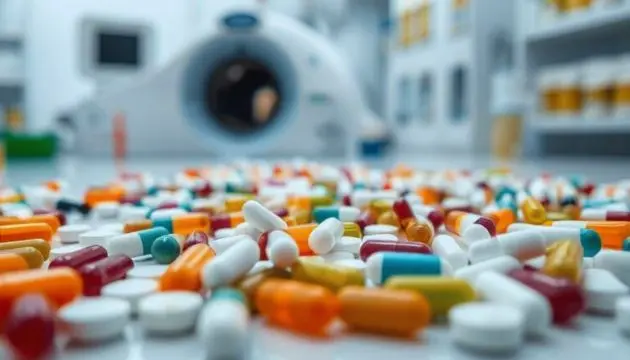ISLAMABAD – The Pharmacy Services & Drug Control (PS&DC) department of Islamabad Capital Territory (ICT) has given its drug inspectors a modern device called the Raman Analyzer. This small handheld device can quickly check and detect fake medicines — a big step toward stopping fake and low-quality drugs.
According to the private newspaper report, it is the first time in Pakistan that drug inspectors will use this kind of advanced technology to check medicines directly at medical stores.
Fake medicines have been a serious problem in Pakistan for years. Criminals often copy the packaging of original drugs, making it hard to identify the fake ones. With this new device, inspectors can now check the quality of medicines on the spot in just a few seconds.
Sardar Shabbir Ahmed, Secretary of the Islamabad Quality Control Board, said this new step is a major achievement for the city. He prepared the proposal for the purchase of the Raman Analyzer. The federal government approved the plan under a development project and set aside Rs 312 million for it.
Islamabad has over 1,400 drug sale points, but only three inspectors were available to check them. This made monitoring very difficult. The Raman Analyzer has a built-in record of over 12,000 drug samples. It helps inspectors quickly check if the medicine is real or fake without sending it to a lab.
— ALSO READ —
Budget 2025-26 targets foreign and local e-commerce with new digital tax rules
“This device helps us find fake medicines right away. We can stop their sale and send only suspicious ones for more testing. It saves time and is more reliable,” Sardar Shabbir said.
The department is also planning to buy three more analyzers and five vehicles to help inspectors in the field. It has also hired three more drug inspectors and three officers to monitor medicine safety.
Fake antibiotics, cancer medicines, and life-saving drugs are still being sold in many parts of the country. Experts say traditional methods are too slow and not enough to deal with the problem.
In recent years, PS&DC Islamabad has taken many new steps to improve drug control. These include making pharmacists mandatory at medical stores, controlling the sale of special medicines, using devices to track temperature for sensitive drugs, and banning illegal drug sales.
Officials believe that with the help of modern technology like the Raman Analyzer, Islamabad’s drug control system is becoming a model for other provinces. “Our goal is to make sure only safe and good-quality medicines reach the people,” said Sardar Shabbir.
Experts hope other parts of the country will also follow Islamabad’s lead to protect the public from harmful fake medicines.
Meanwhile, the Drug Regulatory Authority of Pakistan (DRAP) has also made an important change in the Drug Rules 1976. A new order has been prepared to ensure medicine supply during war or emergency situations.
— ALSO READ —
Islamabad gets new social security health centre in Humak
Under this new national strategy, pharmaceutical companies will be required to supply medicines to both civil and military hospitals during emergencies.
According to the amendment, companies must give priority to medicine supply in such situations. This change has been added to the licensing, registration, and advertising sections of the Drug Rules 1976, especially Rule 30, Sub-clause 4.
In another concerning report, Alkhidmat Pharmacy Services Director, Syed Jamshed Ahmed, revealed in May that a study found 97% of pharmacies in Pakistan do not store medicines properly. The research showed that most of the 50,000+ pharmacies in the country lack temperature-controlled environments and proper medical refrigerators, which can reduce the effectiveness of medicines.
To solve this issue, Alkhidmat Foundation has launched a pharmacy home delivery service to provide safe, affordable, and quality medicines to people at their doorstep.











